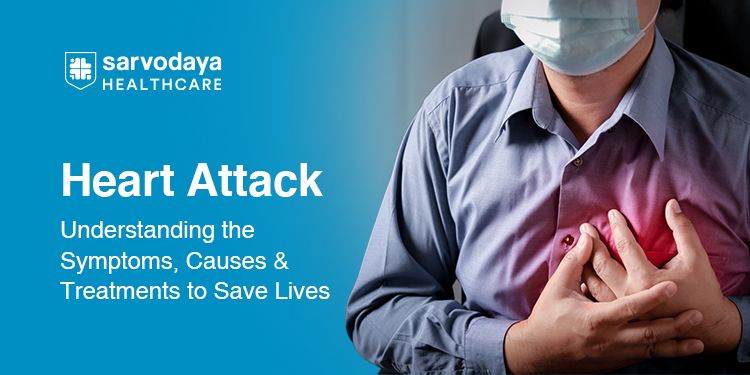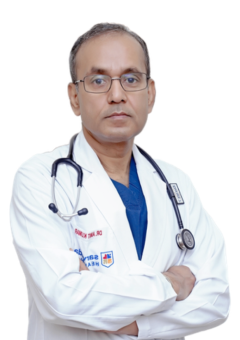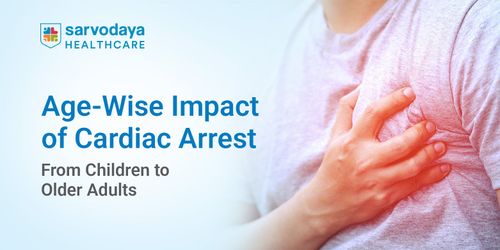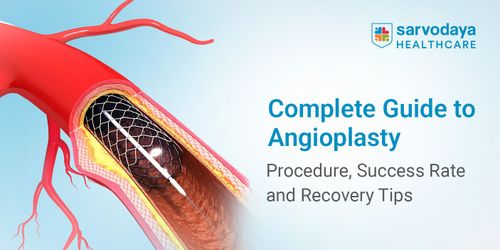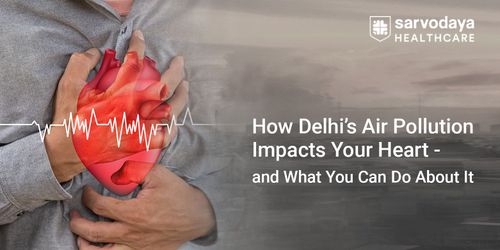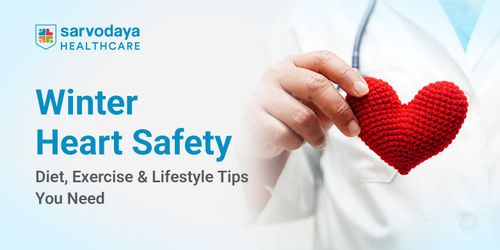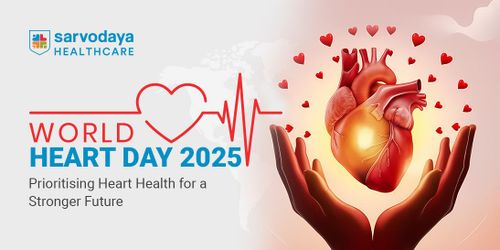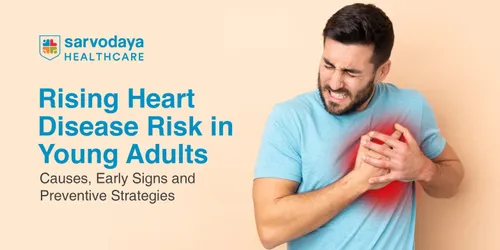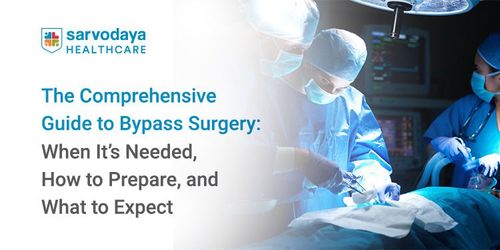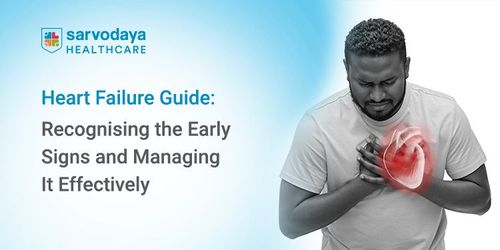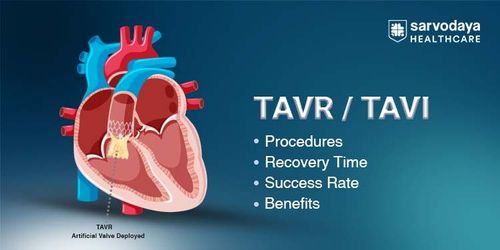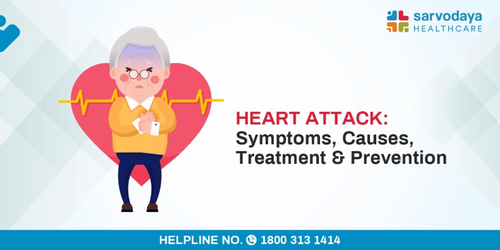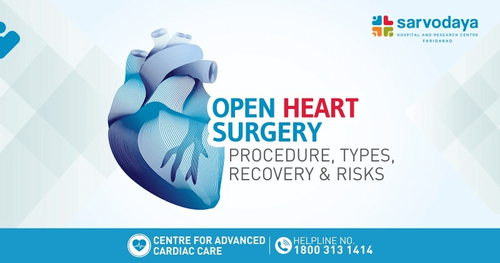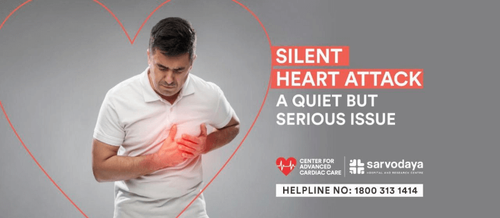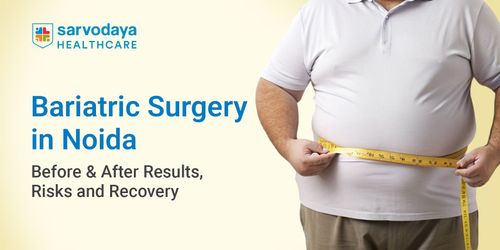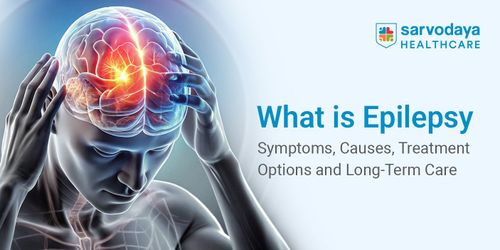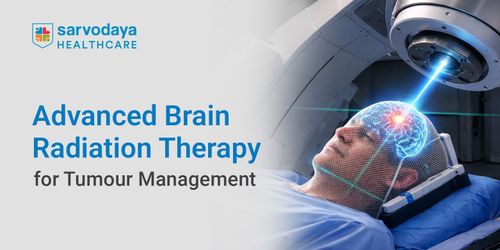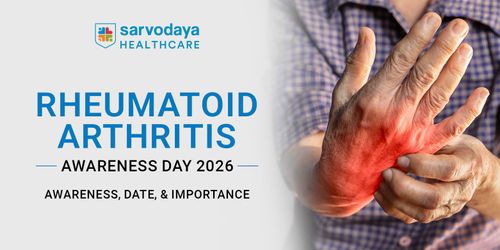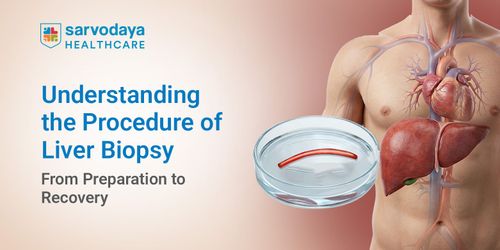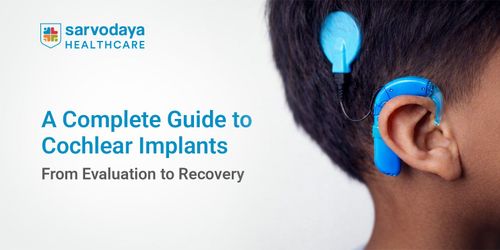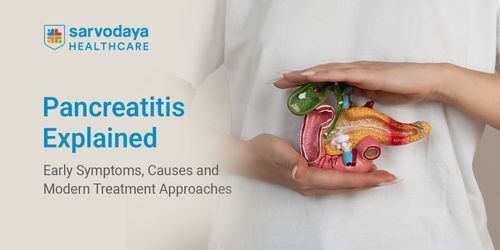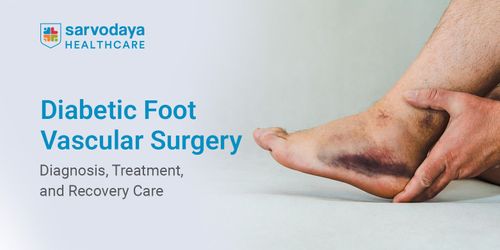A heart attack can strike without warning, changing a life in minutes. With cardiovascular diseases becoming one of the leading causes of death in India, awareness is our strongest defence. The earlier a heart attack is identified and treated, the better the outcome.
This blog is your complete guide to recognising heart attack symptoms, understanding what causes them, learning first aid when a heart attack strikes, and exploring the best treatment for heart attack.
What is a Heart Attack?
A heart attack, or myocardial infarction, occurs when blood flow to a part of the heart gets blocked. If the heart doesn’t get oxygen, the muscles in it begin to die, which might lead to permanent damage if it is not treated properly.
Many confuse a heart attack with cardiac arrest, but they’re not the same. While in a heart attack, the heart is still beating but the blood supply is blocked; in cardiac arrest, the heart stops beating completely.
Recognising the Warning Signs: Heart Attack Symptoms
A pain in the chest is not always the first heart attack symptom. Sometimes, they start with subtle signs that are easy to ignore. But recognising the early heart attack symptoms can help you seek help before it’s too late.
While symptoms of a heart attack can vary from person to person, there are some commonly reported signs. Women, for example, may experience symptoms like fatigue or nausea without chest pain. That’s why it’s so important to listen to your body and never ignore unusual discomfort.
Common heart attack symptoms include:
- Tightness, pressure, or pain in the chest
- Pain spreads from the arms, neck, back, or jaw to other parts of the body.
- Shortness of breath, even without exertion
- Light-headedness or fainting
- Cold sweat or sudden nausea
- Unexplained fatigue, especially in women
If you or someone near you is experiencing any of these heart attack symptoms, don’t wait; get help immediately.
Major Causes and Risk Factors
Heart attacks often build up silently, the result of years of unhealthy habits or underlying conditions. Knowing what increases your risk can help you take preventive steps toward a healthier heart.
Some risk factors are genetic and cannot be avoided, but there are some factors too that are within your control. The good news? Many of these causes can be addressed early with lifestyle changes and medical guidance, including timely treatment for a heart attack if needed.
Key Causes and Risk Factors Include:
- High blood pressure and high cholesterol
- Diabetes or insulin resistance
- Smoking and tobacco use
- Lack of physical activity
- Stress and poor sleep
- Obesity and poor diet
- Family history of heart disease
If you identify with one or more of these risk factors, talk to your doctor about regular heart health screenings. Prevention starts with awareness—and the right care.
First Aid When a Heart Attack Occurs: What You Must Do
A heart attack can happen suddenly, anywhere—at home, in a car, or even in the middle of a conversation. In those critical moments, what you do next can save a life. Whether it's you or someone around you, knowing first aid when a heart attack strikes is essential.
Before diving into the steps, remember this: every second counts. Acting quickly improves the chance of survival and minimises damage to the heart muscle.
First Aid During Heart Attack: Step-by-Step
- Call emergency medical help immediately.
- Help the person remain calm and make them sit or lie in a comfortable position.
- Loosen any tight clothing they may be wearing, especially if it is around the neck and chest.
- Give a 300mg aspirin tablet for the patient to chew slowly if they are not allergic and conscious. It helps by thinning the blood.
- Do not leave the person alone.
- If the person becomes unconscious, begin CPR immediately if you are trained. If not, ask the emergency helpline operator to guide you.
Understanding first aid during a heart attack can empower you to act with confidence in a frightening situation. Don’t assume someone else will step in—it might be you who makes the difference.
Treatment for Heart Attack: What Comes Next
Once a patient reaches the hospital, doctors move fast to prevent further heart damage. How the heart attack treatment goes depends on the severity of the blockage, the time it took for them to get medical attention and their heart condition.
Modern medicine offers several effective ways to restore blood flow and protect heart function. Here's what a typical treatment approach looks like:
Common Treatment Options Include:
- Medications: Thrombolytics, antiplatelets, beta-blockers, and pain relievers
- Angioplasty and stenting: It is a procedure to open blocked arteries.
- Bypass surgery: For severe blockages, bypassing the artery may be necessary.
- Oxygen therapy and monitoring: To stabilise the patient in the ICU
- Cardiac rehabilitation: To support recovery through supervised exercise, diet, and lifestyle changes
Where to Go: Choosing the Right Cardiac Expert
When dealing with something as critical as heart health, choosing the right medical expert is everything. A heart attack needs not just emergency response but long-term management, diagnosis, and preventive care. That’s why it's important to connect with the best heart specialist in Delhi NCR, professionals who can guide you with both expertise and compassion.
Here’s what to look for:
- Expertise and Experience: A strong background in handling emergency cardiac care
- Advanced Facilities: Access to modern diagnostics like ECG, echocardiograms, angiography, etc.
- Emergency Services: Support and critical care units that operate 24x7
- Holistic Care: From diagnosis to post-recovery rehabilitation
For those in the region, finding the best cardiologist in Faridabad Delhi NCR, can be life-changing. The right expert ensures not only accurate treatment but also support in preventing future cardiac episodes.
Conclusion: Take Charge of Your Heart Health Today
A heart attack doesn’t announce itself—it just arrives. But with awareness, quick response, and the right care, you can fight it and win. Start by paying attention to early heart attack symptoms, learn how to offer first aid when a heart attack happens, and know where to seek help when it’s needed most.
At the heart of quality cardiac care in the region is Sarvodaya Hospital, Faridabad. Recognised as one of the best heart hospitals in Faridabad, Delhi NCR, Sarvodaya offers advanced cardiac facilities, round-the-clock emergency services, and a team of top-tier specialists. Whether you're recovering from a cardiac episode or simply looking to prevent one, a consultation with the best cardiologist in Faridabad, Delhi NCR at Sarvodaya can be your first step toward a healthier future.
Remember, the heart is the engine of life. Don’t wait for symptoms to strike—get regular check-ups, understand the symptoms of a heart attack, and never ignore discomfort.


